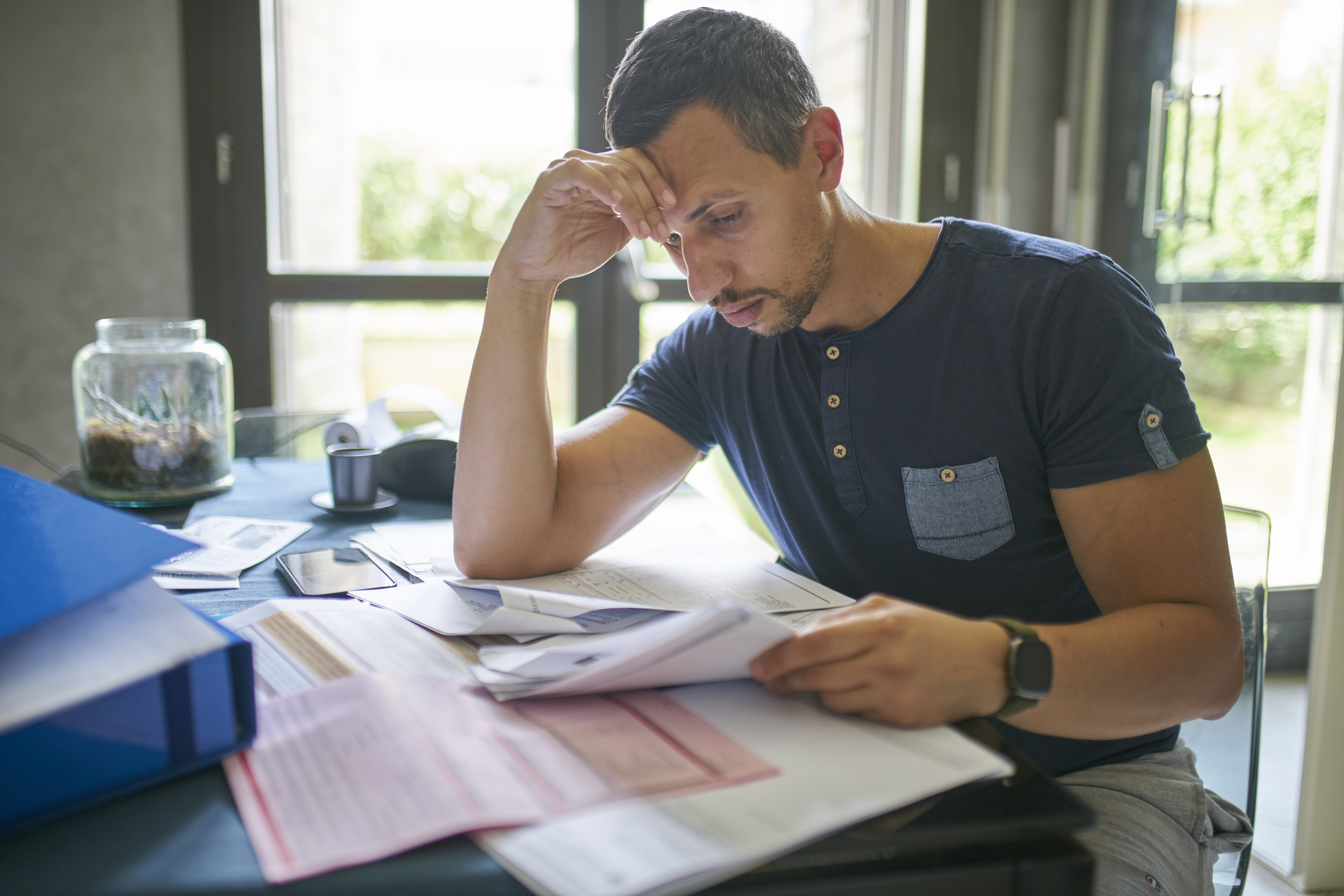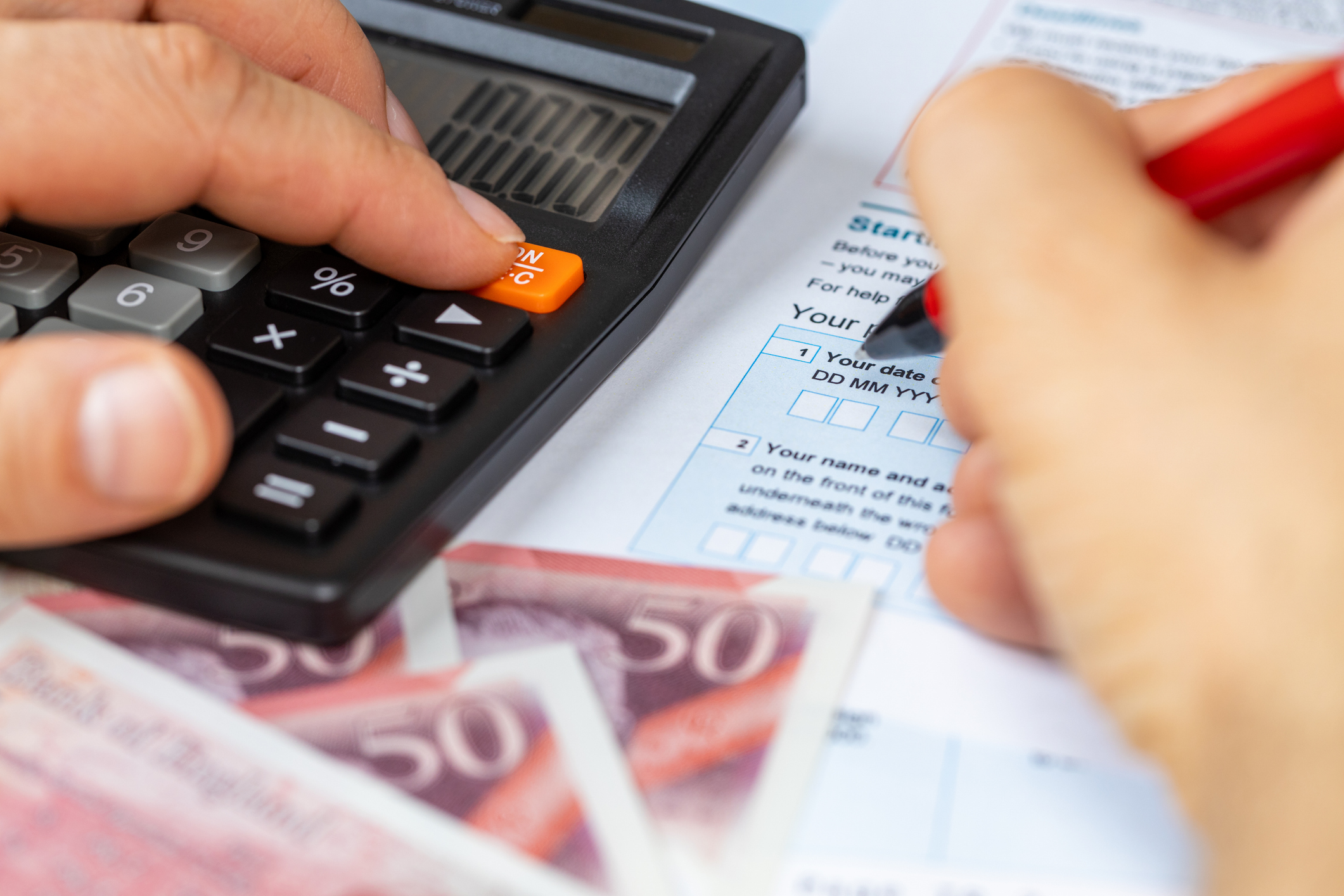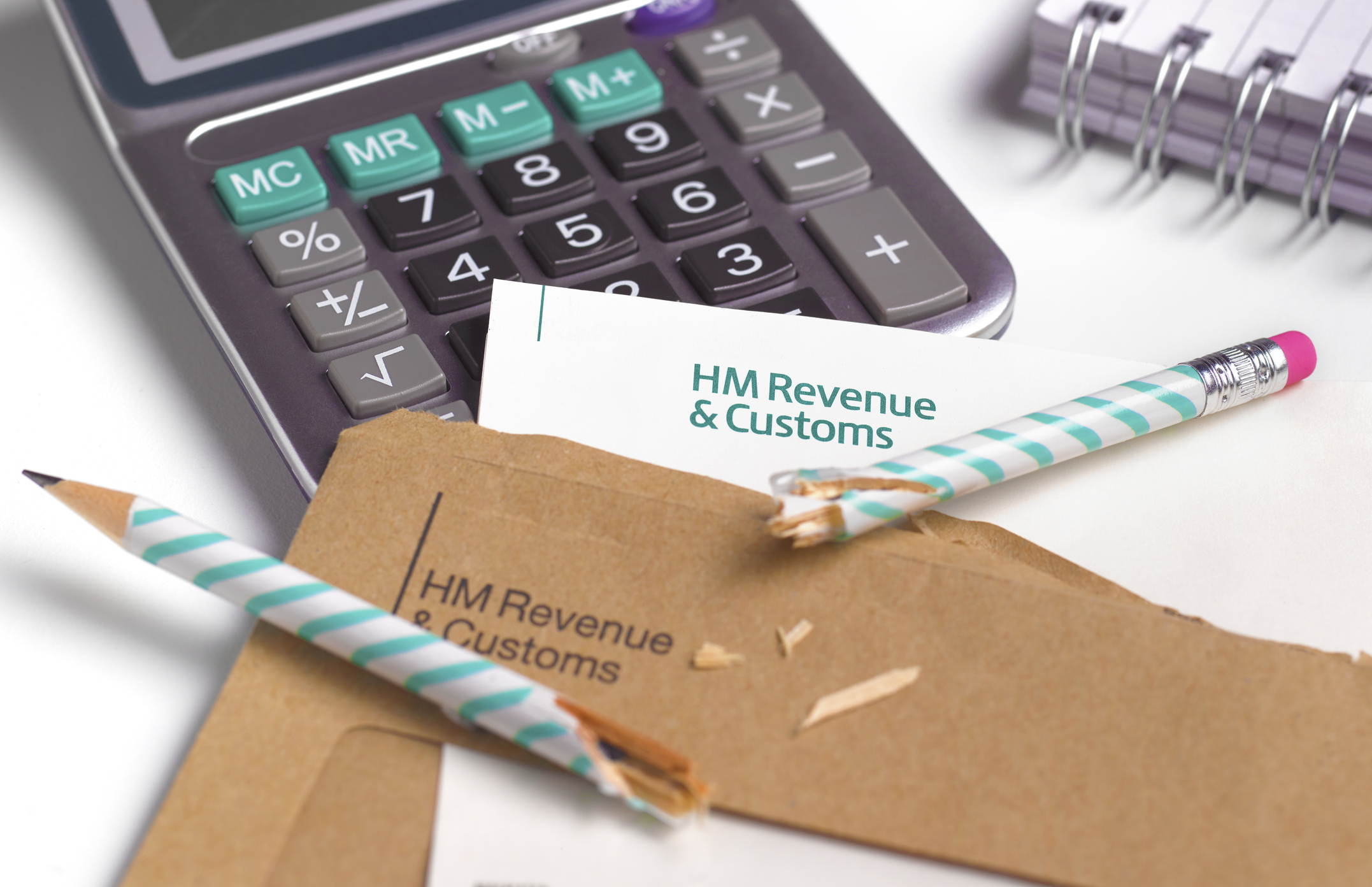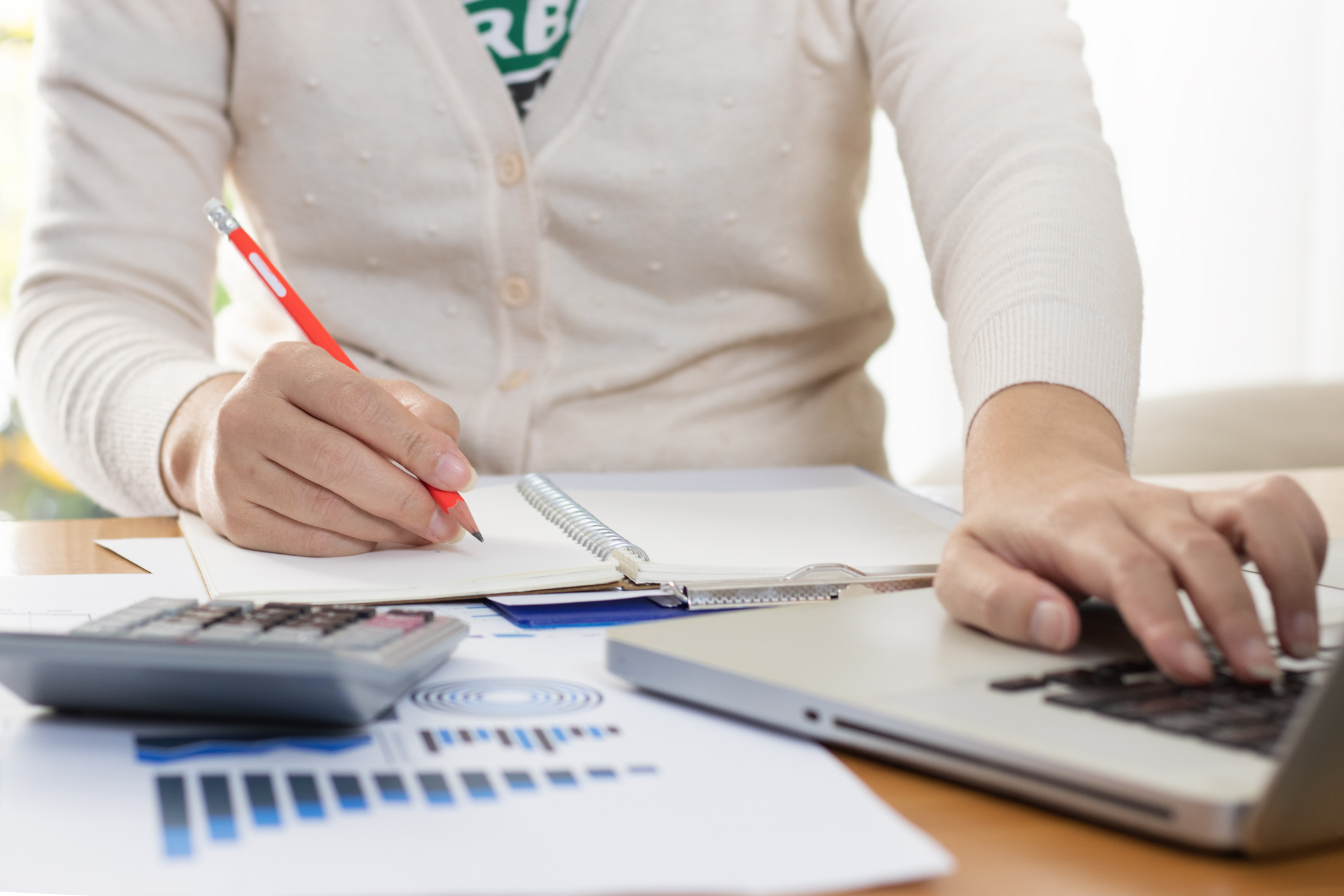Tax return deadline: act now to get your paper tax return in by 31 October
We explain who needs to complete a self-assessment tax return, common mistakes to avoid - and what to do if you miss the deadline


Get the latest financial news, insights and expert analysis from our award-winning MoneyWeek team, to help you understand what really matters when it comes to your finances.
You are now subscribed
Your newsletter sign-up was successful
Want to add more newsletters?

Twice daily
MoneyWeek
Get the latest financial news, insights and expert analysis from our award-winning MoneyWeek team, to help you understand what really matters when it comes to your finances.

Four times a week
Look After My Bills
Sign up to our free money-saving newsletter, filled with the latest news and expert advice to help you find the best tips and deals for managing your bills. Start saving today!
Taxpayers wishing to submit a paper tax return must ensure that HM Revenue & Customs (HMRC) receives it by midnight on Thursday, 31 October – or risk being fined.
While most people file their self-assessment returns online, almost 400,000 people choose to fill in and post a paper version.
“If you are planning to complete a paper self-assessment return, remember that the Halloween deadline is the date by which HMRC needs to receive all necessary paperwork - not the last day that you can send your return off,” comments Stevie Heafford, tax partner at accountancy firm HW Fisher.
MoneyWeek
Subscribe to MoneyWeek today and get your first six magazine issues absolutely FREE

Sign up to Money Morning
Don't miss the latest investment and personal finances news, market analysis, plus money-saving tips with our free twice-daily newsletter
Don't miss the latest investment and personal finances news, market analysis, plus money-saving tips with our free twice-daily newsletter
“If you don’t think you will have enough time, don’t be spooked - you can still decide to complete your return online, for which the deadline is 31 January 2025.”
However, anyone who files a paper tax return after the 31 October deadline could be fined by HMRC. You’ll pay a late penalty of £100 if your tax return is up to three months late. If it’s later than this, you could face fines totalling more than £1,000.
The deadline to pay any tax due for the 2023-24 tax year is 31 January 2025 - regardless of whether you submit a paper or online self-assessment return.
The 31 January deadline to pay tax or file an online tax return may feel like a long way off, but there are actually only 100 days to go. It’s a good idea to submit it as soon as you can, and then you don’t have it hanging over your head during the Christmas break and into the New Year.
According to HMRC, 3.5 million people have already beaten the clock and submitted their tax returns for the 2023-24 tax year.
More than 12 million people need to file a tax return; more than 97% of these are filed online.
Who sends a paper tax return?
While an overwhelming majority prefer to complete their tax return digitally, there are still some individuals who choose to complete their return via post.
You need to request a paper return if you want to file your self-assessment this way. HMRC says: “We no longer automatically issue paper returns unless there’s a reason a customer can’t file online.”
You can either download the paper tax return (download SA100 on gov.uk), or call HMRC to ask for one (0300 200 3610, Monday to Friday: 8am to 5pm).
Do you need to file a tax return?
You must submit a tax return if you have self-employed earnings or have received untaxed income over £1,000 - or if HMRC has issued a notice to complete one.
However, it’s not just the self-employed who have to complete a tax return. Here are some more reasons why you may have to file one:
- You're a buy-to-let landlord with untaxed rental income
- You’re a higher-rate taxpayer who pays into a pension or gives to charity
- You receive child benefit and you or your partner have an income above £50,000
- You make more than £6,000 in capital gains
- You have a side hustle and make more than £1,000 a year
- You rent out a spare room, and make more than the rent-a-room limit
- You invest in a VCT or EIS
Top tips for completing your tax return
Stevie Heafford gives the following tips to avoid making common mistakes:
- Allow yourself plenty of time. Gathering all the paperwork takes longer than you think. This includes your P60, which will confirm the total tax deducted at source from your income. You will also need a record of benefits and expenses, which can be found on your P11D or P9D forms. If you have left a job in the last tax year, you will also need a P45 from your previous employer.
- Don’t forget to claim tax relief on pension contributions. Make sure you keep details of any pension contributions made to allow you to claim the right tax relief for them.
- Make sure you include charity gift aid payments. For example, have you sponsored a friend to run for charity? This can be included as HMRC provides some tax relief on charitable giving.
- If you’re submitting a paper tax return, keep a proof of postage on file in case there are any postal delays. You should keep a copy of your completed tax return and related documents.
- Remember your starting rate for savings, personal savings allowance and dividend allowance. You could receive up to £5,000 in interest on savings tax-free in addition to your personal allowance and personal savings allowance. These allowances are reduced depending on income levels. There is also the dividend allowance, which was £1,000 for the 2023-24 tax year.
What happens if I miss the 31 October deadline?
Don’t worry, if you miss the paper tax return deadline, you can avoid a fine by submitting it online instead. Just make sure it’s done by 31 January.
However, if you submit a paper return after the 31 October cut-off, you'll be charged a £100 penalty, even if there's no tax to pay.
If you still haven’t filed your self-assessment return after three months, further penalties of £10 a day are applied, up to a maximum of £900. After six months, HMRC will fine you 5% of the tax owed or £300 (whichever sum is greater), which is repeated at 12 months.
You’ll also be charged 7.5% interest on late payments.
Watch out for scams
Self-assessment customers should beware of HMRC scams, as tax return season is a popular time for fraudsters to target victims.
HMRC warns that criminals may use emails, phone calls and texts to try to steal information and money from taxpayers. You should never share your HMRC log-in information with anyone. A fraudster could use them to steal from you or claim benefits or a refund in your name.
We have more information about how to protect yourself from scams and what to do if you are conned in Self-assessment tax scams on the rise.
Get the latest financial news, insights and expert analysis from our award-winning MoneyWeek team, to help you understand what really matters when it comes to your finances.

Ruth is an award-winning financial journalist with more than 15 years' experience of working on national newspapers, websites and specialist magazines.
She is passionate about helping people feel more confident about their finances. She was previously editor of Times Money Mentor, and prior to that was deputy Money editor at The Sunday Times.
A multi-award winning journalist, Ruth started her career on a pensions magazine at the FT Group, and has also worked at Money Observer and Money Advice Service.
Outside of work, she is a mum to two young children, while also serving as a magistrate and an NHS volunteer.
-
 Should you buy an active ETF?
Should you buy an active ETF?ETFs are often mischaracterised as passive products, but they can be a convenient way to add active management to your portfolio
-
 Power up your pension before 5 April – easy ways to save before the tax year end
Power up your pension before 5 April – easy ways to save before the tax year endWith the end of the tax year looming, pension savers currently have a window to review and maximise what’s going into their retirement funds – we look at how
-
 Two million taxpayers to be hit by £100k tax trap by 2026/27
Two million taxpayers to be hit by £100k tax trap by 2026/27Frozen thresholds mean more people than ever are set to pay an effective income tax rate of 60% as their earnings increase beyond £100,000. We look at why, as well as how you can avoid being caught in the trap.
-
 13 tax changes in 2026 – which taxes are going up?
13 tax changes in 2026 – which taxes are going up?As 2026 gets underway, we look at what lies ahead in terms of changes to tax rates and allowances this year and how it will affect you.
-
 How to limit how much of your Christmas bonus goes to the taxman
How to limit how much of your Christmas bonus goes to the taxmanIt's Christmas bonus season but the boosted pay packet may mean much of your hard-earned reward ends up with HMRC instead of in your pocket
-
 Over 1 million pay 45% rate of income tax as fiscal drag bites
Over 1 million pay 45% rate of income tax as fiscal drag bitesHundreds of thousands more people are being pushed into the additional rate tax band by fiscal drag
-
 Simple assessment explained as millions brace for unexpected tax bills
Simple assessment explained as millions brace for unexpected tax billsIncreasing numbers of people could get letters from HMRC saying they owe more tax due to frozen thresholds, under a system known as simple assessment. Here is what it means for you.
-
 What are wealth taxes and would they work in Britain?
What are wealth taxes and would they work in Britain?The Treasury is short of cash and mulling over how it can get its hands on more money to plug the gap. Could wealth taxes do the trick?
-
 When is the self-assessment tax return deadline?
When is the self-assessment tax return deadline?If you are self-employed, rent out a property or earn income from savings or investments, you may need to complete a self-assessment tax return. We run through the deadlines you need to know about
-
 HMRC warning after scammers target 170k taxpayers – how to stay protected
HMRC warning after scammers target 170k taxpayers – how to stay protectedScammers are using increasingly sophisticated methods to trick people into sharing personal details or paying for fake self assessment tax refunds